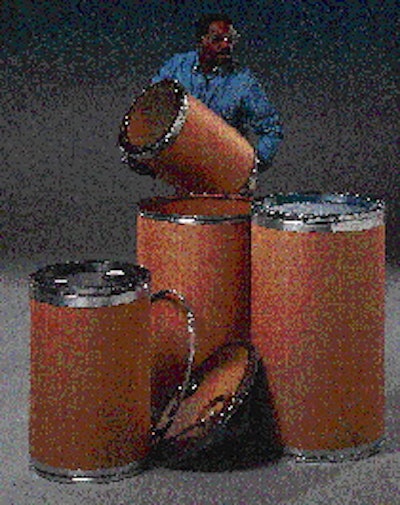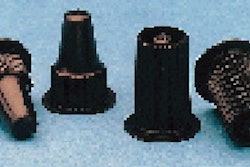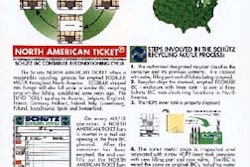
Chemical companies that package liquid hazardous materials in open-headed fiber drums are on the edge of their chairs waiting for a National Academy of Sciences (NAS) report. A 13-member NAS committee met in October to vote on recommendations it will be making to the U.S. Dept. of Transportation (DOT). Those recommendations will not become public until next month. The DOT must decide whether fiber drums should be forced to meet the performance packaging specifications that went into effect on October 1, 1996. The drums cannot meet the drop and hydrostatic tests in those specifications, according to Gordon Rousseau, managing director of the International Fiber Drum Institute (IFDI). The Institute persuaded Congress to stick an amendment in the Interstate Commerce Commission Sunset Act, passed in December 1995, which gives fiber drums an exemption from meeting the performance standards until October 1, 1997. The IFDI has proposed alternative specifications, including a leakage spray test and impact test. Open-headed drums, regardless of whether they are made from fiber, steel or plastic, are a near necessity for some customers: those who buy viscous liquids which cannot be poured out through a two-inch bung, those who scoop chemicals out of a drum with a ladle, and those who mix chemicals in the drum. Fiber drums are made from seven or eight windings of heavy kraft paper. The open-ended variety are the ones that are at issue. They have a number of advantages over steel and plastic, according to Rousseau. They can be cut to the size (e.g., gallon) specifications of customers and are about one-half the weight of similar steel drums. Because of those advantages, numerous users have written to the DOT pleading for an exemption for fiber drums. These shippers include: Shell Oil Co., Olin Corp., Cooper Chemical Co., Borden Inc., General Chemical Corp., and many others. Rick Norment, formerly executive director of the Steel Shipping Container Institute (SSCI), complains that allowing fiber drums to use alternative specifications will establish a precedent that other container manufacturers will seek to follow. "If one industry can develop its own unique set of performance standards, the same will be sought by plastic drums, intermediate bulk containers, paper sacks and yes, by steel shipping containers," Norment states. Gerald Gordon, research consultant and regulatory compliance specialist with the industrial container division of Sonoco Products Co. (Hartsville, SC), a major manufacturer of fiber drums, says the performance standards that went into effect on October 1, 1996 eliminated only one category of packaging: open-headed fiber drums used to transport liquid hazardous materials. "All other containers for hazardous materials, with minor modifications, can meet the new specifications, although the customers may be paying for that," Gordon explains. He argues that the DOT has never claimed that open-headed fiber drums are unsafe. Gordon is particularly annoyed with Rick Norment, whom he accuses of "talking out of both sides of his mouth." What sticks in Gordon's craw is the fact that one manufacturer of heavy paint, who ships in open-head steel drums, went to the DOT and received an exemption to use a steel drum that would not otherwise meet the drop test for heavy-density materials such as paints. Norment emphasizes it was the shipper, not the SSCI, who beseeched the DOT. But Norment admits that the SSCI is developing the data necessary to request the DOT to initiate a rulemaking-which will be subject to public comment-on lowering drop test heights for drums of all kinds containing hazardous materials with high densities. "We haven't approached the DOT yet," Norment explains. "We are still having discussions within our technical projects committee." Coincidentally, Gordon says he supports the kind of changes SSCI is seeking. Not to be left out of the performance test "exemption game," the Association of Container Reconditioners (ACR) in late September dumped a petition on the DOT's doorstep. It asks the department to cancel an exemption from the leakproofness test for plastic drums awarded to the National Association of Chemical Distributors (NACD). That exemption is only for plastic drums used in a "controlled distribution chain." That is where a distributor uses one truck for only one customer, both to ship drums with new product, and to bring back empty drums. In winning the exemption, the NACD argued a visual inspection of those drums is enough to find leaks. The drum reconditioners have to perform the leakproofness test when shipping to their customers. "We tested 60ꯠ plastic drums with a mechanical leakproofness test and found leaks in two percent of them that could not be identified visually," explains Paul Rankin, president of ACR. "Also, we don't think the chemical distributors are really adhering to a controlled distribution chain. The NACD had no comment.

























